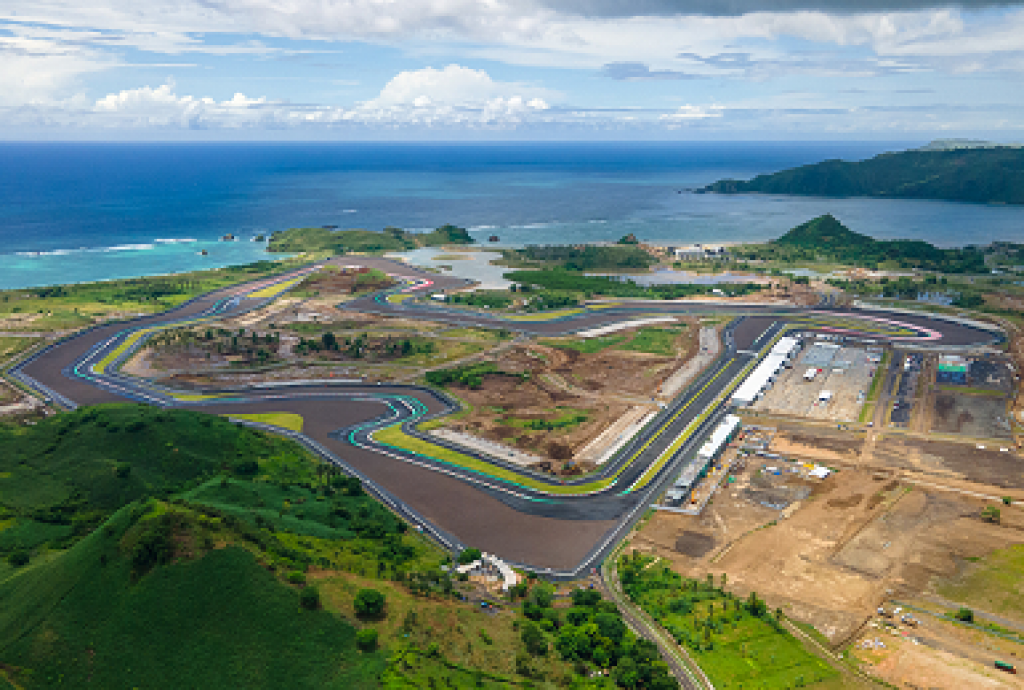
17 Bali Property Sale Terms That You Must Know

Many foreign homebuyers find it difficult to understand how to buy property in Bali or Indonesia in general because the procedure is different as well as some terminology, it doesn’t help. Bali real estate agents are here to help so you don’t get stressed over such things, but a little extra knowledge never hurts anyone and we always advise our buyers to have a clear understanding before making a purchase.
Please understand that there’s a very long list of terms related to this topic, and we’ll cover only the frequently asked ones here:
What is a leasehold property? What is the difference between leasehold and freehold?
Homes for sale in Bali are typically advertised using terms widely used in Commonwealth nations, though the meaning may not be exactly the same because Indonesian property law is different. Here are some of the terms used in Bali real estate marketing:
- Freehold: Properties for sale where the permanent ownership (i.e. Hak Milik title) will be transferred from the seller to the buyer. The law dictates that freehold properties can only be owned in the name of Indonesian citizens and foreigners often use a nominee to circumvent this, but it's illegal and we do not recommend this option. The safest legal approach to own property in Indonesia as a foreigner is by acquiring it with a PT PMA, which we’ll talk about below.
- Leasehold: Properties for long-term lease where the buyer pays for the entire lease period upfront. Essentially the buyer enters an agreement with the seller to use the seller’s property until the agreement ends, but the ownership of said property does not change. This is a highly desirable option as foreigners have the legal right (i.e. Hak Sewa) to temporarily own a property directly in their name without having to use a nominee or a company. The agreement is recorded by a notary in the form of a lease agreement which serves as legal proof.
- Monthly/Yearly Rental: Properties for rent on a monthly/yearly basis where the buyer and seller enters an agreement, but it’s different from a leasehold agreement as there are limitations. Typically the buyer won’t be able to modify the structure and/or sublease the property, and the agreement itself may not be notarized.
Can a foreigner buy a property in Indonesia? Can foreigners own land in Bali?
Foreigners can buy and own leasehold properties in Indonesia in their name with Hak Sewa or Hak Pakai. Proof of ownership for properties with Hak Milik, Hak Guna Bangunan, and Hak Pakai title takes the form of a certificate which is registered and recorded in the Land Office (i.e. BPN), whereas for Hak Sewa it is a lease agreement made and recorded by a government-licensed notary.
- Hak Milik: Freehold ownership title, which grants permanent ownership of a property. Hak Milik is registered in the Land Office under the owner’s name, with every ownership transfer and title conversion recorded in the certificate itself as well as the Land Office. Only Indonesian citizens are allowed to hold this title.
- Hak Sewa: Leasehold ownership title, which grants the right to occupy someone else’s property (land or villa) for a fixed duration. Foreigners can legally own a property with this title for up to 30 years and may extend for 20 more years, but in practice it is the agreement between the buyer and the seller that determines the lease duration. The agreement will also determine whether the buyer can alter, renovate, and sublease the building.
- Hak Guna Bangunan (HGB): Title reserved for commercial purposes, converted from Hak Milik and the ownership is transferred to either an Indonesian-owned or foreign-owned company. Using his title is the most secure approach to own a property for foreigners and grants the ability to acquire freehold properties. An HGB is valid for 30 years and extendable for 20 more years, and it can be reverted back to Hak Milik if the ownership is transferred to an Indonesian citizen or certain legal entities such as state-owned banks or religious bodies.
- Hak Pakai: similar to Hak Sewa, but involves the conversion of the Hak Milik into Hak Pakai in the Land Office which will cost more time and money. Hak Pakai is less used than Hak Sewa due to other factors including Hak Pakai properties may only be used for private residence.
Strata titles for apartment/condo units are available for foreigners, but properties with such titles are rarely found in Bali as there’s relatively few apartment buildings compared to villas.
Also read: What is the process for buying property in Bali?
What is zoning law? What is a Banjar in Bali?
The governance in Bali is unique in many ways, but nonetheless, the property buying and selling process is largely the same as the rest of Indonesia.
- Notary: In Indonesia, the term “notary'' can refer to a single person holding two public official positions. One is a public notary authorized to issue notarial deeds such as lease agreements, and the other is a land official known as Pejabat Pembuat Akta Tanah (PPAT) authorized to handle land registry. The two professions are distinct from one another, but “notary” is often used interchangeably because most public notaries also double as PPAT and vice versa.
- Badan Pertanahan Nasional (BPN): The National Land Office responsible for issuing land certificates in Indonesia. BPN keeps a record of every ownership transfer and title conversions of a property, and the notary performs due diligence checks with them.
- Land Zoning: Land in Bali is regulated by zoning law which restricts the land’s utilization depending on which zone it is located. The land zones that you would usually encounter are Pemukiman (residential zone), Pariwisata (touristic zone), and Pertanian (farming/green zone), with each zone having their own limitations.
- Banjar: A community-level governing body uniquely found in Bali, responsible for the administration and governance of a given neighborhood. Each Banjar has their own customs and provisions.
If this is your first time buying Bali properties for sale and/or unfamiliar with how property transactions work here, we strongly recommend buying through a licensed Bali real estate agent for a smooth and secure process.
What is IMB or PBG? What is a PT PMA?
Having the necessary permits and licenses are crucial for the safety of your investment, especially if you’re operating a business such as villa rentals in Bali. As previously stated, each land zone has its limitations and it determines whether a property is eligible for certain permits or not.
- Izin Membangun Bangunan (IMB) & Persetujuan Bangunan Gedung (PBG): Both refer to the building permit of a property which must be obtained before construction is completed. It is impossible to obtain a building permit for properties located in a Pertanian zone. While IMB is no longer in use since it was replaced by PBG in 2021, the term is still frequently used to this day.
- Pondok Wisata: Homestay license is required to operate a house or villa as a daily rental. It can only be issued to properties located in a Pariwisata zone and to Indonesian citizens or companies including PT PMAs, but foreign individuals can acquire properties that are already registered with the license.
- Perseroan Terbatas Penanaman Modal Asing (PT PMA): Foreign investment company legally established and registered in Indonesia, which may be partially or fully foreign-owned depending on the business classification. Establishing a PT PMA requires a hefty capital. Still, it is the most secure approach to owning a property for foreigners and grants the ability to acquire freehold properties with an HGB (Hak Guna Bangunan/Right to Use) title.
Also read: How to Acquire a Property using a PT PMA | Can foreigners own freehold property in Bali?
How much is property tax in Indonesia?
There’s the usual value-added tax and there are also other property taxes that you must take into account when buying Bali land for sale or Bali homes for sale, including:
- Pajak Bumi dan Bangunan (PBB): Land and building tax of a property that must be paid annually. In leasehold or yearly rental properties, it is typically paid by the tenant rather than the landowner.
- Nilai Jual Objek Pajak (NJOP): Tax object sale value applicable on freehold properties which determines the amount of transfer and acquisition tax that must be paid by the seller and the buyer, respectively. The value varies according to the region and increases from time to time, which must be checked by the notary as part of due diligence.
- Bea Perolehan Hak Atas Tanah & Bangunan (BPHTB): Land and building acquisition tax applicable on freehold property transactions, which must be paid by the buyer. At the time of this writing, the tax value is 5% of the sale price.
- Pajak Penghasilan untuk Pengalihan Hak Atas Tanah & Bangunan: Income tax on land and building transfer applicable on freehold property transactions, which must be paid by the seller. At the time of this writing, the tax value is 2.5% of the sale price.
- Pajak Penghasilan untuk Sewa Tanah & Bangunan: Income tax on land and building lease applicable on leasehold property transactions, which must be paid by the seller. At the time of this writing, the tax value is 10% or 20% of the sale price depending on whether the seller has a tax identification number (NPWP) or not.
- Nomor Pokok Wajib Pajak (NPWP): Tax identification number for individuals and companies in Indonesia. Foreigners residing in Indonesia on a long-term and/or generating income in Indonesia are obliged to have an NPWP.
Those are just the essential terms that you will hear or see often when browsing houses in Bali, and we truly hope it helps you understand better. If you’re looking for the best property agent in Bali to help you find the perfect home, feel free to contact us anytime.
Disclaimer: The information contained in this content is intended for general informational purposes only and should not be considered legal, tax, or other professional advice. Readers are advised to seek professional counsel, including legal and tax professionals, for any specific questions or concerns regarding property terms, regulations, and related legal and tax issues. Readers are advised that property terms, regulations, and tax laws are subject to change and may differ depending on specific circumstances or locations. The author and Bali Home Immo make no representation or warranty, express or implied, as to the accuracy, completeness, or currency of the information contained in this content, and shall not be held responsible for any consequences or damages arising from the reliance on the information provided in this content.








